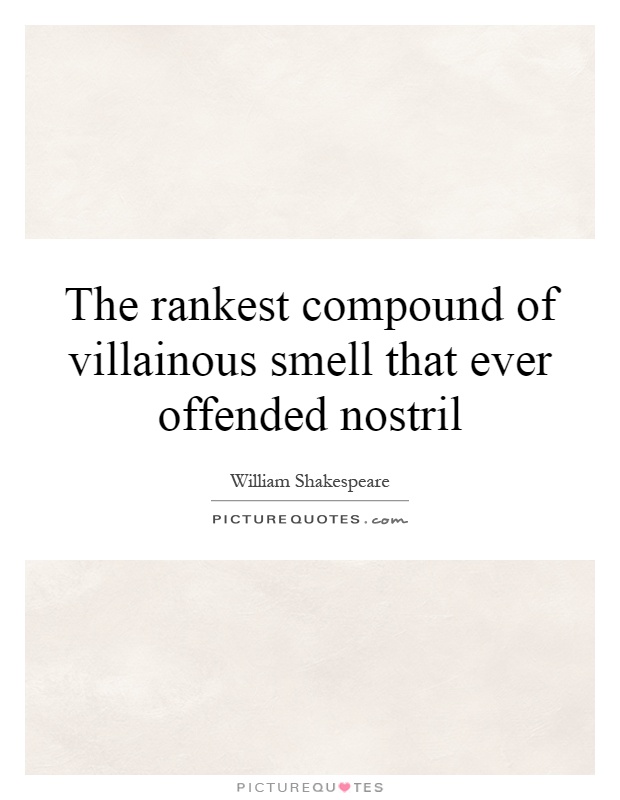The rankest compound of villainous smell that ever offended nostril

The rankest compound of villainous smell that ever offended nostril
In William Shakespeare's play "King Lear," the character of Edgar describes the foul odor emanating from the disguised Duke of Cornwall as "the rankest compound of villainous smell that ever offended nostril." This vivid description not only paints a picture of the physical stench but also serves as a metaphor for the moral corruption and evil that the Duke embodies.The use of the word "compound" suggests that the smell is a mixture of various vile elements, creating a noxious and overpowering odor. This mirrors the Duke of Cornwall's own character, which is a combination of cruelty, deceit, and treachery. The word "villainous" further emphasizes the Duke's wickedness and malevolence, highlighting his role as one of the play's primary antagonists.
The phrase "that ever offended nostril" conveys the extreme repulsiveness of the smell, suggesting that it is so foul that it is offensive even to the most tolerant of senses. This can be seen as a reflection of the Duke's actions throughout the play, which are so despicable and abhorrent that they offend not only the characters within the story but also the audience witnessing his deeds.
Shakespeare's use of such a vivid and evocative description serves to heighten the dramatic tension and emphasize the moral decay that permeates the world of "King Lear." The Duke of Cornwall's foul odor becomes a symbol of the corruption and depravity that runs rampant in the play, serving as a warning of the consequences of unchecked ambition and cruelty.
Overall, the phrase "the rankest compound of villainous smell that ever offended nostril" encapsulates the essence of the Duke of Cornwall's character and serves as a powerful reminder of the destructive forces at play in Shakespeare's tragedy. It is a testament to the Bard's skill in using language to create vivid imagery and convey complex themes, making his works timeless and relevant to audiences across the centuries.












 Friendship Quotes
Friendship Quotes Love Quotes
Love Quotes Life Quotes
Life Quotes Funny Quotes
Funny Quotes Motivational Quotes
Motivational Quotes Inspirational Quotes
Inspirational Quotes